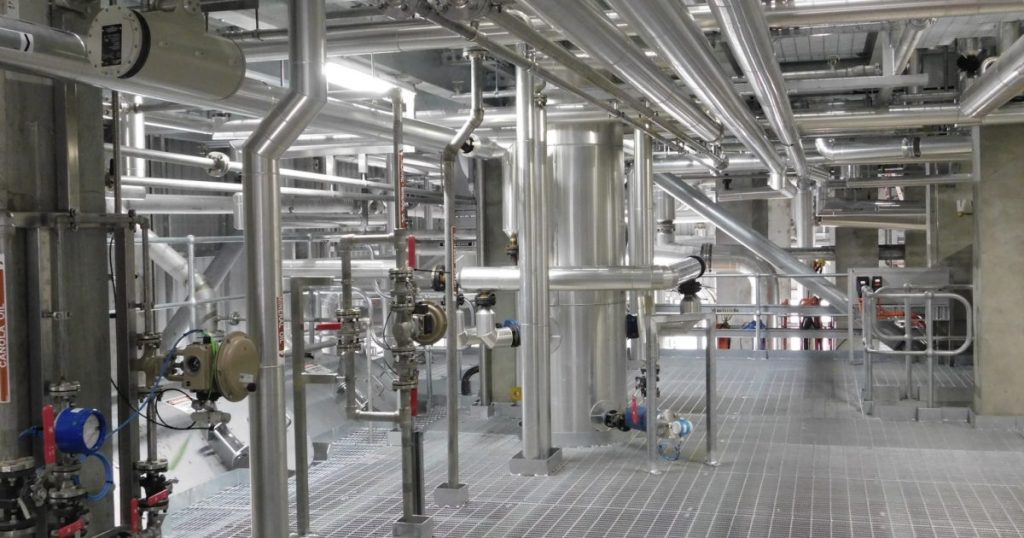Industrial insulation is critical for maintaining efficiency, safety, and performance in many sectors. These professionals specialize in the installation, maintenance, and repair of insulation systems, which are essential for protecting equipment and optimizing energy use. In this article, we’ll explore the important work of industrial insulation contractors, the types of insulation materials they use, the benefits of proper insulation, and tips for selecting the right contractor for your needs.

Contents
Role of Industrial Insulation Contractors
Industrial insulation contractors are responsible for a range of tasks related to insulation systems in various facilities. Their primary responsibilities include:
- Installation: Contractors install insulation in industrial settings, ensuring that all components are properly fitted and securely attached. This requires knowledge of different insulation materials and their specific applications.
- Maintenance: Regular maintenance is essential for the longevity and effectiveness of insulation systems. Contractors perform inspections, identify issues, and carry out repairs to maintain insulation integrity.
- Repair: When insulation is damaged due to wear and tear or environmental factors, contractors assess the situation and conduct necessary repairs or replacements to restore insulation efficiency.
- Consultation: Many industrial insulation contractors also offer consultation services, helping businesses choose the right insulation solutions based on their specific operational needs and regulatory requirements.
Types of Insulation Used in Industry
Various insulation materials are utilized in industrial applications, each offering unique properties and benefits. Here are some of the most common types:
1. Fiberglass Insulation
Fiberglass is one of the most widely used insulation materials due to its excellent thermal performance and cost-effectiveness. It is available in batts, rolls, and loose-fill forms, making it suitable for a range of applications.
2. Mineral Wool (Rock Wool) Insulation
Mineral wool insulation is made from natural or recycled materials and is known for its fire resistance, soundproofing qualities, and thermal performance. It is ideal for high-temperature environments.
3. Foam Insulation
Foam insulation, including spray foam and rigid foam boards, provides superior thermal performance and air sealing capabilities. It is commonly used in areas requiring high insulation values and moisture resistance.
4. Calcium Silicate Insulation
Calcium silicate is typically used in high-temperature applications, such as steam pipes and boilers. It is resistant to moisture and provides excellent thermal performance under extreme conditions.
5. Aerogel Insulation
Aerogel insulation is known for its exceptional thermal resistance and lightweight properties. Though more expensive, it is used in specialized applications where space is limited, and high performance is required.
Benefits of Industrial Insulation
Investing in proper industrial insulation yields numerous advantages for businesses:
1. Energy Efficiency
Effective insulation reduces heat loss and gain, leading to significant energy savings. This efficiency translates into lower utility bills and a reduced carbon footprint, benefiting both the environment and your bottom line.
2. Cost Savings
By minimizing energy consumption and prolonging equipment lifespan, proper insulation leads to substantial cost savings over time. Additionally, it can reduce the need for expensive maintenance and repairs on heating and cooling systems.
3. Safety
Insulation helps maintain safe temperatures on equipment and surfaces, preventing burns and other hazards associated with extreme heat. This safety factor is critical in industries that handle hazardous materials or high-temperature processes.
4. Environmental Benefits
Using insulation materials with low environmental impact contributes to sustainability efforts. Effective insulation also reduces energy consumption, which can lower greenhouse gas emissions associated with heating and cooling.
Real-world Applications of Industrial Insulation
Industrial insulation plays a critical role across various sectors:
1. Manufacturing
In manufacturing facilities, insulation is essential for maintaining optimal temperatures in production processes and protecting equipment from thermal fluctuations.
2. Chemical Processing
Insulation helps regulate temperatures in chemical processing plants, ensuring safe operation and preventing heat loss in reaction vessels and piping.
3. Oil and Gas
The oil and gas industry relies heavily on insulation to protect pipelines and equipment from extreme temperatures and environmental conditions.
4. Power Generation
In power generation facilities, insulation is vital for steam pipes, turbines, and boilers, helping to improve energy efficiency and ensure safe operations.
Tips for Selecting the Right Industrial Insulation Contractor
Choosing the right industrial insulation contractor is crucial for the success of your insulation project. Here are some practical tips:
1. Check Experience and Qualifications
Look for contractors with a proven track record in industrial insulation. Verify their qualifications and certifications to ensure they are equipped to handle your specific needs.
2. Read Reviews and Testimonials
Research online reviews and testimonials from previous clients. Positive feedback can provide insights into the contractor’s reliability and quality of work.
3. Obtain Multiple Quotes
Request quotes from several contractors to compare pricing and services. This will help you understand the market rates and identify any red flags in pricing.
4. Verify Safety Practices
Ensure the contractor follows stringent safety practices and has the necessary insurance coverage. This protects you from financial liability in the event of accidents during the project.
5. Discuss Materials and Methods
Talk to potential contractors about the materials they plan to use and their methods for installation. A knowledgeable contractor should be able to recommend the best solutions for your specific applications.
Conclusion
Industrial insulation contractors play a vital role in enhancing energy efficiency, safety, and overall operational effectiveness in various industries. By understanding the types of insulation available and the benefits of proper installation, companies can make informed decisions that impact their bottom line.
If you’re considering investing in industrial insulation, take the time to research and select a qualified contractor who meets your needs. With the right expertise, you can ensure your insulation systems are effective, durable, and aligned with your operational goals.

